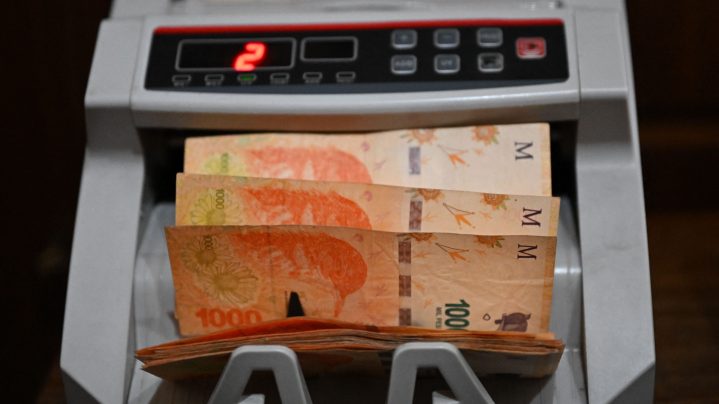
What would a common currency mean for Brazil and Argentina?
What would a common currency mean for Brazil and Argentina?

Brazil and Argentina are expected to announce preliminary plans about a common currency this week. The two countries are now politically aligned, following the recent election of Brazil’s former president, Luiz Inácio Lula da Silva of Brazil. This could set the stage for another major currency bloc, with the eurozone serving as both a blueprint and a cautionary tale.
The idea of having Brazil and Argentina go in on a common currency is raising the same question in many corners right now.
“My initial reaction was, ‘Why do this?’” said Bipan Rai, global head of foreign currency exchange strategy at CIBC.
That’s especially the case for Brazil, he said. “Argentina historically has been a pretty unstable environment for currencies. In fact, they’ve had to introduce new currency quite frequently throughout its history.”
Argentina’s currency woes are still pressing. Last year, its inflation rate hit a three-decade record of 95%. The attraction may come down to influence for Brazil, Rai said.
“It would give them the same sort of clout that Germany might have over a peripheral country in the eurozone,” he said, adding that Brazil’s economy is much larger than Argentina’s, and it wants to solidify its position as a regional powerhouse.
Brazil may also be concerned about Argentina deepening economic ties with other countries, said Susan Pozo, an economics professor at Western Michigan University.
“They may want to forge ahead in terms of linking themselves more closely to Argentina,” she said.
Having a common currency could also ease trade between the two countries. “Trade across borders can be much more expensive when you have to think about exchange rates and potential changes in exchange rates,” she said.
But Pozo said that economic integration comes at a cost. Harvard University government professor Jeffry Frieden agreed.
“It eliminates or dramatically reduces each country’s flexibility in their monetary policy,” he said. “I think that what would happen is that Argentina would be giving up its monetary policy” — a powerful tool for Argentina to govern its own economy.
In Europe, Frieden said that integration meant combining debtor countries like Greece and Spain with creditor countries like Germany. But in the end, “the central bank can’t satisfy everyone,” Frieden said.
Despite the progress in Europe, he said the experience there should be a red flag for Brazil and Argentina, whose economies are on very different tracks.
There’s a lot happening in the world. Through it all, Marketplace is here for you.
You rely on Marketplace to break down the world’s events and tell you how it affects you in a fact-based, approachable way. We rely on your financial support to keep making that possible.
Your donation today powers the independent journalism that you rely on. For just $5/month, you can help sustain Marketplace so we can keep reporting on the things that matter to you.

















